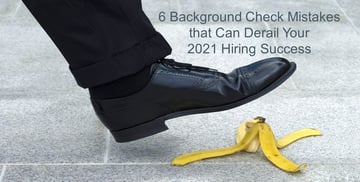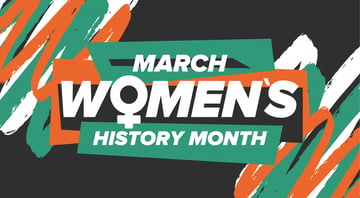 Everyone's talked about the Millennials forever, and with good reason. They're a huge generation and the first one to be raised with the internet. However, there’s a new topic in town, and it’s going to be just as interesting to hear about as the Millennials have been for the past decade. Gen Z is growing up, and is going to affect the workplace, and the world, in a variety of ways. It’s vital that HR professionals understand who Gen Z is, how they differ from Millennials, and how to hire them successfully.
Everyone's talked about the Millennials forever, and with good reason. They're a huge generation and the first one to be raised with the internet. However, there’s a new topic in town, and it’s going to be just as interesting to hear about as the Millennials have been for the past decade. Gen Z is growing up, and is going to affect the workplace, and the world, in a variety of ways. It’s vital that HR professionals understand who Gen Z is, how they differ from Millennials, and how to hire them successfully.
Who They Are
Gen Z was born from around 1996 to 2010, according to The Pew Research Center. They are the largest generation in U.S. history and comprise 27% of the population. In addition, they are the most racially diverse. 52% are non-Hispanic white, 25% are Hispanic, 14% are black, 6% are Asian, and 5% are either another race or multiple races. The oldest Gen Z’ers have either entered the workforce in the past few years or are in college.
How They Differ from Millennials
Millennials and Gen Z are similar politically and possess a more philanthropic mindset than previous generations. However, there are some significant differences in the two generations.
- They have more educated backgrounds. While many Millennials are well-educated, Gen Z is even less likely to have dropped out of high school and more likely to obtain a Bachelor’s degree. In addition, Gen Z’s parents (typically their parents are Gen X) are also more likely to attain some level of college education.
- They possess greater optimism. Millennials grew up through post-9/11 and the Great Recession. Many of them saw parents lose their jobs and homes, and this made a lasting impact on this generation. Gen Z hasn’t experienced these types of events, although the current pandemic may mold many of their insights, and so they are more hopeful than the previous generation about their futures, home ownership, and job opportunities. With this optimism comes higher expectations.
- They’re bigger savers. In a recent survey, 35% of Gen Z stated they planned to start saving for retirement in their 20’s. 12% of respondents said they had started saving in their teens! This is vastly different than the Millennials, who are less inclined to be focused on saving for retirement.
- They were immersed in technology from the cradle. The average Gen Z’er was 10 when the iPhone came out. They grew up with the internet, smart devices, and being connected 24/7. While Millennials are tech-savvy, many of them can remember life without the internet and social media.
How to Hire Them Successfully
As with any generation, Gen Z brings strong benefits and unique requirements to the table as employees. Recruiting and onboarding them needs to include these steps.
- Sharpen your company’s online recruiting. HR should work with marketing to increase and improve the strength of how the company brand is showcased online. This was important with Millennials but is absolutely necessary if you want to hire Gen Z A-players.
- Offer stability. This generation is risk-averse, so they are attracted to jobs that provide a stable work environment and steady income. Showcasing employees with long tenures, ways your company has successfully implemented work-life balance, and future-assisting programs like 401ks with company matches will entice them to work for you.
- Focus on traditionally-sought benefits. Bring-your-dog-to-work days and ping-pong tables may have gotten Millennials’ attention, but you’ll come up short if you’re counting on those type of perks to woo Gen Z. As mentioned above, this generation wants old-school retirement planning as well as robust health coverage and ample vacation time. Talking about ways they can secure a long-term career with plenty of options will appeal to this generation. And, as a result, your company can secure a loyal employee.
- Market job flexibility. These young people have grown up in the have-it-in-seconds environment that mobile technology provides. They are able to multi-task and don’t want to be bored. Jobs where they can perform different tasks, learn new things, and implement ideas will appeal to this generation. Unlike Millennials, who love teamwork and collaboration, Gen Z is an independent bunch and aren’t scared to think and make moves on their own. Projects where they will have ownership of the outcome will be the ones that attract them to your open positions.
Gen Z’ers are definitely going to dramatically impact the workplace now and during the next decade. By understanding what they want in a job, how they think, and the ways they differ from their Millennial counterparts, HR pros can evolve their companies into ones that are attractive to this generation. The benefits of landing members of this highly educated, independent, stability-seeking generation are immeasurable.
Other posts you might be interested in
View All Posts
5 Background Check Mistakes that Can Derail Your 2021 Hiring Success
Read More
Why HR Should Add Driver Screening to Their Hiring Process
Read More
